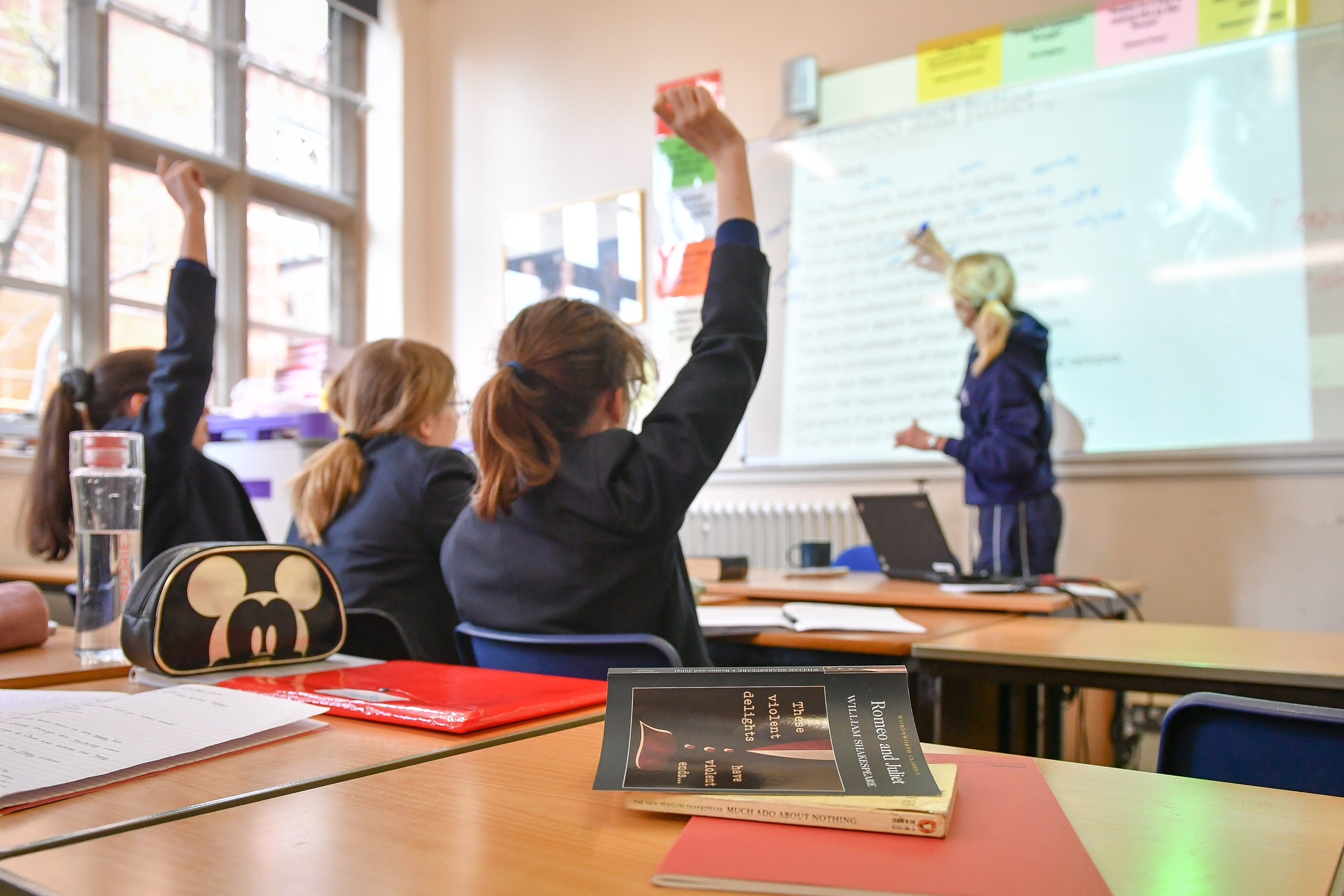Top comprehensive schools take fewer pupils on free school meals, report finds
More than 150 comprehensive secondary schools in England are more ‘socially selective’ than the average grammar school
Your support helps us to tell the story
From reproductive rights to climate change to Big Tech, The Independent is on the ground when the story is developing. Whether it's investigating the financials of Elon Musk's pro-Trump PAC or producing our latest documentary, 'The A Word', which shines a light on the American women fighting for reproductive rights, we know how important it is to parse out the facts from the messaging.
At such a critical moment in US history, we need reporters on the ground. Your donation allows us to keep sending journalists to speak to both sides of the story.
The Independent is trusted by Americans across the entire political spectrum. And unlike many other quality news outlets, we choose not to lock Americans out of our reporting and analysis with paywalls. We believe quality journalism should be available to everyone, paid for by those who can afford it.
Your support makes all the difference.The best state secondary schools in England are failing to take in disadvantaged pupils and some are less diverse than grammar schools, a new report on social mobility has found.
More than 150 comprehensive secondary schools in England are more “socially selective” than the average grammar school, according to research from The Sutton Trust, and class integration is getting worse.
The 500 comprehensives with the best grades in the country take 40 per cent fewer pupils eligible for free school meals than the average comprehensive, the report found.
Education experts have condemned the levels of social segregation between schools as “unacceptable” and pushed for a “reset” that would reward schools for taking in children from poorer families.
The Sutton Trust study found that comprehensives are increasingly controlling their own admissions, from 80 per cent in 2016 to 90 per cent in 2022. The “attainment gap” between disadvantaged and well-off pupils is at its highest level since 2011, due to disrupted education during the pandemic, researchers said.

They looked at the top 500 secondary schools in England by the Attainment 8 measure – which assesses the achievement of a pupil across eight subjects at GCSE.
On average, the top schools took 40 per cent fewer children on free school meals than a normal comprehensive school. Experts suggested that around a third of this gap was down to the schools being located in more affluent areas, but two-thirds represented “some form of social selection within that area”.
Faith schools, for example, were more likely to be “socially selective” than non-religious top comprehensive schools.
Evidence showed that the schools with the top grades were taking 30 per cent fewer pupils eligible for free school meals than lived in their catchment areas, showing that they were not representative of their local communities.
Sir Peter Lampl, founder of the Sutton Trust, said that “the poorest parts of the country are hit by a double whammy of having the fewest top comprehensive schools, which are also the most socially selective”.
In the northeast, there were fewer top schools and those that did have good grades were the most socially selective in the country. In 2016, 5.4 per cent of the top state schools were in the northeast but this has now dropped to around 4 per cent.
In London however, there is an increasing number of top 500 schools, improving public exam results and decreasing levels of social selectivity, the report said.
The report explained that there is a spiral affect, with schools with more affluent intakes being more likely to achieve top grades, send pupils to university and attract teachers.
The most aspirational parents then gravitate towards the schools “which leads to a vicious cycle of inequality”, the report said.
Professor of social mobility, Lee Elliot Major, at the University of Exeter, said it was “unacceptable that so many schools are failing to reflect the social make-up of the communities they are intended to serve”.
He added: “We need a fundamental reset of our priorities in education – schools should only be judged outstanding by Ofsted for example if they are taking in their fair share of free school meals pupils and demonstrating that these pupils are making good progress.

“The current accountability system punishes teachers who take on pupils from under-resourced backgrounds. A school system that is socially segregated is bad news for educational equity and social mobility.”
Sarah Atkinson, chief executive of the Social Mobility Foundation, said that the research demonstrated the “shocking extent to which social background and parental networks affect education outcomes for young people at every stage and in every part of the system.”
She called on the government to “prioritise action to close the attainment gap”.
Sir Lampl added: “The levels of social segregation across the school system are unacceptable. We need to urgently address this problem to create a more balanced system and raise the quality of all schools.”
A spokesperson for London mayor Sadiq Khan said that it was good that the capital was “leading the way”, but added: “It is simply not right that so many children are disadvantaged because of their background and it’s vital that the government does more to tackle the inequality that they face.”
Geoff Barton, general secretary of the Association of School and College Leaders, said: “Fairer access is not just about admissions practices. It is also about ensuring that all schools have the support and resources they need to provide a high-quality education wherever they are and whatever their context.
“Currently, we have an inspection system which often actively damages schools that face the greatest challenges by the application of negative ratings which make it more difficult to recruit staff and pupils.”
A spokesperson for the Department of Education said: “Education standards have risen sharply across the country since 2010 with 89 per cent of schools now rated good or outstanding by Ofsted, up from just 68 per cent 13 years ago.
“The Schools Admissions Code requires admission arrangements to be fair, clear and objective, and no child should be unfairly disadvantaged.
“Admission authorities can choose to prioritise children eligible for the pupil premium when they are over their published admission number according to their need of their local area.”

Join our commenting forum
Join thought-provoking conversations, follow other Independent readers and see their replies
Comments